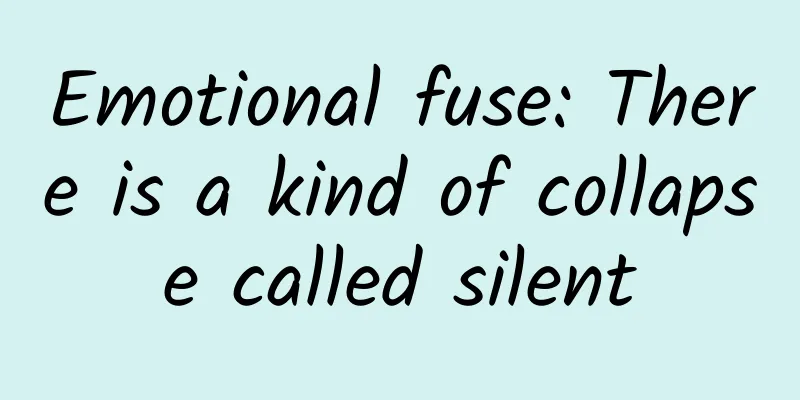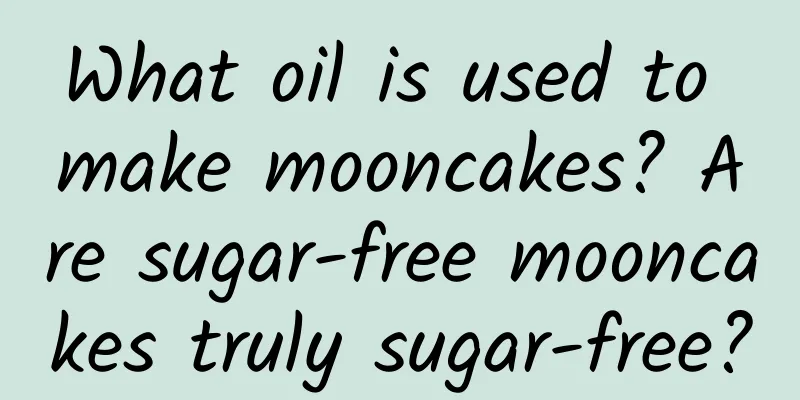Emotional fuse: There is a kind of collapse called silent

|
In the popular online drama "I Am Yu Huanshui", the protagonist Yu Huanshui, played by Guo Jingfei, is a middle-aged man who lives a miserable life. Not only does he have no status in his family, but he is also servile at work. However, his humility did not bring him respect and appreciation from others. His company's performance was at the bottom, and his wife divorced him. Even more tragically, he was diagnosed with pancreatic cancer. He was so desperate that he wanted to commit suicide for a while. At the beginning of the story, Yu Huanshui tried to escape his failed life by committing suicide | www.news.qq.com Although Yu Huanshui achieved a comeback in the subsequent plot according to the plot requirements, his collapse at the beginning of the plot very realistically reflects the psychological mechanism that may occur after a person encounters continuous setbacks. To explain it with a new psychological term, we can say that Yu Huanshui's behavior encountered an "emotional fuse." Emotional Meltdown: Silent Collapse "Emotional circuit breaker" is not a strict academic concept. It refers to a sudden downturn in emotions, which can even lead to severe depression and despair. Therefore, some people use the term "circuit breaker" to describe a catastrophic decline in the stock market. It is similar to what we often call an "emotional breakdown" to a large extent, but it is not necessarily accompanied by strong outward emotions, such as crying or hysterical frenzy. Its expression may be more subtle and lasting, so it often manifests as a "silent" collapse. In the movie "Joker", after Arthur (the Joker) played by Joaquin Phoenix lost his job one after another and tried to find his relatives but was ridiculed by the wealthy Thomas Wayne, the film presents a visually shocking shot: Arthur got into the refrigerator in his apartment and chose to heal himself in this dark, cold and narrow space. This is not an artistic exaggeration. After watching Joker, a netizen who suffered an emotional meltdown empathized with this plot. He recalled that when he was a teenager, after suffering a series of blows, he collapsed and had no choice but to hide in his own storage room: "That small, dark space gave me the only sense of security. I couldn't stay in any open environment for even a second." Generally speaking, people who experience emotional meltdown may not normally suffer from depression or other mental and psychological problems, and may even appear cheerful and optimistic to outsiders. However, when it suddenly strikes, they will uncontrollably fall into the abyss of despair and fear. People who are in a state of emotional meltdown often have a sense of powerlessness and fear similar to drowning | www.brainblogger.com Everyone's psychological, physiological, and behavioral responses to emotional meltdowns are different. There is a question on the question-and-answer community Quora: "What does it feel like to have an emotional meltdown?" The Indian netizen named Ruhulamin Sande, who received the most likes, wrote: "... You will feel like you are cursed, and your heart will always feel heavy, as if someone has put several tons of weight on it. You can't fall asleep, and even if you try your best, you can only sleep for 2 to 3 hours. The rest of the time you just lie in bed in silence... You don't feel hungry, and you can't eat properly. It's even difficult for you to recognize whether the person in the mirror is yourself. You isolate yourself from the outside world and don't want anyone to know how you feel. "You feel like you are drowning in grief, and every second you are dying. The worst part of an emotional meltdown is a panic attack, where your heart is beating so fast, and every emotion rushes into your mind, telling you that nothing matters, and no matter how hard you try, you can't stop crying. You feel like your life is meaningless, and your dreams and goals no longer matter. You just want this pain to stop, no matter what it takes..." Long-term stress and unexpected events can cause emotional meltdowns. Leo Tolstoy said in Anna Karenina: Happy people are all alike, but unhappy people are each unhappy in their own way. The causes of emotional meltdowns vary from person to person, but generally speaking, they can be classified into two types: long-term mental stress and unexpected life events. Long-term mental stress is something that every member of modern society cannot escape, especially in areas with a faster pace of life and a single standard for measuring social values. According to a 2007 report on the survival of global workers issued by the World Health Organization, 26% of the world's occupations can be classified as high-stress jobs, and 75% of them, as many as 2.4 billion of the world's working population, live in developing countries. For example, last March, a news report about "a young man in Hangzhou was stopped for driving against traffic and broke down and cried on the spot" became a hot search. The person concerned needed to complete a series of tasks at the same time, such as delivering keys to his girlfriend and rushing to the workplace within the time limit to avoid being late. In the end, he was stopped by the traffic police for driving against traffic. The "emotional troughs" caused by a series of setbacks eventually overlapped and triggered a fuse. Sudden disaster events are an important cause of emotional fuses for those who experience them | https://news.un.org/ In addition, various emergencies are also a major culprit for emotional fuses. According to news reports, after the COVID-19 pandemic led to the closure of Wuhan in mid-January, the local psychological counseling hotline in Wuhan received hundreds of calls for help every day, including quarantined personnel, front-line medical staff and ordinary people, mainly showing helplessness and despair. An ordinary citizen in Wuhan who was not infected even suffered from insomnia for 6 consecutive days due to excessive anxiety, and more people showed crying, speech disorders and even the desire to commit suicide during telephone consultations. Although the epidemic has been brought under control, psychological researchers still dare not relax, because three months after the peak of the epidemic, these patients are likely to usher in another wave of high incidence of traumatic stress disorder. It is worth noting that in many cases, sudden life events are just the last straw that breaks the camel's back. Before that, long-term mental stress may have already exhausted our psychological resilience, and the spirit that is forced to remain tense may suddenly collapse at any time. Li Yun, a food delivery worker, worked 16 hours a day just to raise medical expenses for his youngest son who was suffering from leukemia. Late one night, he was delivering food to a customer, but his son suddenly had a high fever. In order to deliver medicine to the child, his order was delayed by 10 minutes. The customer canceled the order, and he had to bear the loss himself. Li Yun collapsed and cried on the street. | www.news.qq.com Who is prone to emotional meltdown? In the busy and empty modern life, everyone is on the verge of emotional meltdown. Although most people can always grit their teeth and persevere, some people are prone to emotional meltdown. This group usually has some common characteristics, such as less social support from interpersonal relationships and a greater tendency to "self-attribution." Why do we get less social support in an age of advanced communication networks? This is still due to an outdated concept, that is, emotional breakdown is a private problem caused by low personal work efficiency and weak willpower, a negative privacy that is difficult to talk about. As long as one is not dragged down for a day, these heavy burdens and hidden pains in the heart cannot be known by family members, colleagues or professional psychotherapists. The so-called "self-attribution" means that when you encounter success or failure, you tend to attribute it to yourself or external factors. For example, the common "credit to oneself and mistakes to others" in life is a typical "egoistic attribution bias". People who are prone to emotional meltdowns often have a negative attribution tendency. They tend to blame themselves for the failure of things and think that they have some stable and unchangeable negative traits (such as not being smart or pretty). They feel guilty or even guilty about failure. They may have encountered suppression and blame from people around them during their growth, which has left them with inferiority complex and makes them always blame themselves habitually. Sudden emotional meltdown, How should we face it? Although in most cases, emotional fuses will recover naturally, leaving them alone can have serious consequences, such as anxiety, depression, and post-traumatic stress disorder. In fact, in my opinion, Yu Huanshui had already experienced an emotional fuse after the car accident 10 years ago, so he became cowardly and timid. Here are some ways to help reduce emotional stress and physical discomfort: It should be noted that staying away does not mean making you forget, but just allowing your tense spirit to temporarily relax and find a chance to restore emotional resilience. This is also the most direct way to eliminate the negative impact it brings. If you experience emotional meltdown symptoms, you need to seek social support from family and friends in a timely manner | https://www.medicalnewstoday.com Seek social support from family and friends, tell them your thoughts and concerns, and get their emotional support or practical material support. If you can't relax your mind, then relax your body first. The body and mind are not binary, but interactive. You can choose deep breathing, massage, exercise, meditation or yoga to relax your body, which can help relieve mental stress. Get a good night's sleep. Many studies have shown that good sleep can help relieve negative emotions, which is a self-protection mechanism of the brain. Therefore, when you are in an emotional meltdown, it is even more important to get a good night's sleep. Creating a good sleeping atmosphere and lighting a relaxing incense in the bedroom when necessary may help. Finally, if conditions permit, you can also seek consultation from a professionally qualified psychologist or psychiatrist, and perhaps receive more professional and personalized psychological guidance. Author: Deng Xiaofei Editor: Zhu Buchong This article comes from Guokr and may not be reproduced without permission. If necessary, please contact [email protected] |
>>: What is the travel guide for Mogan Mountain (a famous scenic spot in China)?
Recommend
Vaginitis taboos
We all know that vaginitis is a disease that occu...
What to do with ovarian cysts?
There are many reasons why women develop ovarian ...
Nodules, hyperplasia, cysts... What do the high-frequency words in physical examination reports mean? Learn more in one article!
In the physical examination report, many people w...
38 days of pregnancy, pink spotting
After a woman becomes pregnant, her menstrual per...
What is the meaning of gynecological TCT examination
Nowadays, many women hear about TCT examination w...
Female head sweating and wet hair
If female friends sweat a lot on their heads, the...
Why do the buds of Endless Summer dry up? How can Endless Summer bloom more?
Endless Summer is a type of hydrangea, named for ...
Can eating motherwort granules induce menstruation?
Motherwort paste is very common in our daily life...
Does fever and headache necessarily mean encephalitis?
This is the 4196th article of Da Yi Xiao Hu Most ...
Pictures of abnormal leucorrhea underwear
Excessive leucorrhea refers to the increase in th...
What is the normal age for menopause?
Every woman has her first menstruation every mont...
Note on ovulation after menstruation
We all know that each of us comes into this world...
Twitter: Daily active users increased rapidly to 139 million in 2Q19
According to Twitter's second quarter 2019 fi...
A guy helped his girlfriend clean her wound, but was diagnosed with rabies? Beware of level 3 exposure!
Recently, #Boy helped his girlfriend suck on her ...









